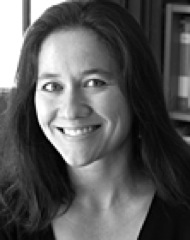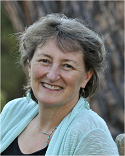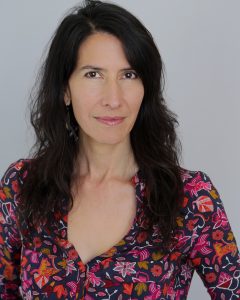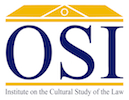Apr
27
2017

OSI
As the fourth workshop of this year’s OSI, we are happy to announce “Cultural Productions, Contentious Properties,” which will be convened by Danilo Mandic and Cristina S. Martinez. This workshop will deal with some of the questions around copying, appropriation, authorship, and copyright that have become particularly prescient in the 21st century.
This workshop explores and challenges the contentious properties that both law and culture inform and perform. Considering different forms of cultural production and expression, it seeks an understanding of property rights, legal fictions, artistic practices of copying and appropriation. Taking as a point of departure Michel Serres’s notion of ‘appropriation through pollution’ and extending it to current case studies we will discuss and examine contentious claims and negotiations. To what extent are we in need to (or, bound to) discuss cultural production through legal structures? The relation between authors and users and the division between private and public maintain an ongoing tension between dichotomous viewpoints manifested in different spheres of cultural production, particularly as these are intensified by the proliferation of digital technology and the challenges it has introduced with regard to production, distribution and use of cultural expression. We will explore the legal concepts of property/ownership/appropriation, and question the extent to which the processes of relations/communication both precede and inform them with an attempt to understand and challenge the dominating and expanding proprietary principles of copyright.
Apr
25
2017

OSI
 We are very happy to announce that Leti Volpp will return to this year’s OSI as the second convenor of Workshop 2 “Claiming the Past, Belonging for the Future.” She is the Robert D. and Leslie Kay Raven Professor of Law at Berkeley Law, where her research focuses on questions of immigration and citizenship. She has served as a Visiting Professor affiliated with the Amerika-Institut of Ludwig-Maximilians-Universität München, and as past Faculty for the Osnabrück Summer Institute on the Cultural Study of Law. Her honors include two Rockefeller Foundation Humanities Fellowships, a MacArthur Foundation Individual Research and Writing Grant, and the Association of American Law Schools Minority Section Derrick A. Bell, Jr., Award. She is a member of the International Scientific Advisory Board of the Max Planck Institute for the Study of Religious and Ethnic Diversity.
We are very happy to announce that Leti Volpp will return to this year’s OSI as the second convenor of Workshop 2 “Claiming the Past, Belonging for the Future.” She is the Robert D. and Leslie Kay Raven Professor of Law at Berkeley Law, where her research focuses on questions of immigration and citizenship. She has served as a Visiting Professor affiliated with the Amerika-Institut of Ludwig-Maximilians-Universität München, and as past Faculty for the Osnabrück Summer Institute on the Cultural Study of Law. Her honors include two Rockefeller Foundation Humanities Fellowships, a MacArthur Foundation Individual Research and Writing Grant, and the Association of American Law Schools Minority Section Derrick A. Bell, Jr., Award. She is a member of the International Scientific Advisory Board of the Max Planck Institute for the Study of Religious and Ethnic Diversity.
Continue Reading »
Apr
14
2017

OSI
 The first convener of Workshop 2, “Claiming the Past, Belonging for the Future,” that we would like to introduce is Marianne Constable. She is Professor of Rhetoric at UC Berkeley and has published broadly on a range of topics in legal rhetoric and philosophy. Her most recent book, entitled Our Word is Our Bond: How Legal Speech Acts, (Stanford University Press, 2014) shows how legal utterances, in speech and writing, are forms of law-in-action. She is currently working on the “new unwritten law” that ostensibly exonerated women who killed their husbands in Chicago a century ago, as a way of exploring the rhetoric of law and the rhetoric of history. Her earlier books include Just Silences: The Limits and Possibilities of Modern Law (2005) and The Law of the Other: The Mixed Jury and Changes in Conceptions of Citizenship, Law and Knowledge (1994), which won the Law and Society Association’s J. Willard Hurst Prize in Legal History.
The first convener of Workshop 2, “Claiming the Past, Belonging for the Future,” that we would like to introduce is Marianne Constable. She is Professor of Rhetoric at UC Berkeley and has published broadly on a range of topics in legal rhetoric and philosophy. Her most recent book, entitled Our Word is Our Bond: How Legal Speech Acts, (Stanford University Press, 2014) shows how legal utterances, in speech and writing, are forms of law-in-action. She is currently working on the “new unwritten law” that ostensibly exonerated women who killed their husbands in Chicago a century ago, as a way of exploring the rhetoric of law and the rhetoric of history. Her earlier books include Just Silences: The Limits and Possibilities of Modern Law (2005) and The Law of the Other: The Mixed Jury and Changes in Conceptions of Citizenship, Law and Knowledge (1994), which won the Law and Society Association’s J. Willard Hurst Prize in Legal History.
Continue Reading »
Apr
13
2017

OSI
The second workshop we want to introduce this week will deal with a variety of questions on claims to/of heritage and their implications. Workshop 2 “Claiming the Past, Belonging for the Future” will be convened by Marianne Constable and Leti Volpp. This is their abstract for this workshop:
Heritage, heredity, and inheritance all come from the past and yet their claims are not simply historical. Indeed, as present-day acts, claims of heritage set up what belongs to whom for the future. What kinds of claims are these? Are they distinct as claims? What is it to make or state or stake a claim? How are legal claims performed? What do claims, as speech acts, involve? Does every claim involve an assertion of fact plus a demand for recognition? When are claims as to heritage factual? When are they claims of law? To what do they appeal? And what sort of evidence do they call for? How does what counts as evidence of a particular claim change over time?
Drawing in part on the work of J. L. Austin on speech acts and referring to a small number of documents drawn from various legal contexts — particular statutes, local regulations, trial transcripts, and possibly UN documents — we’ll begin to touch on the complexity of these issues as they relate to cultural heritage and historic preservation. Readings will include scholarship about the 20th-century legal history of archeology and about encounters between different traditions.
Apr
12
2017

OSI
 As we just posted information on our first convener, Sabine N. Meyer, today we want to introduce her co-convener in Workshop 3 “Real and Performative Properties: Competing Claims to Citizenship, Indigeneity, and Land,” Beth Piatote. She is associate professor of Native American Studies, and affiliated faculty in the Department of Linguistics and the American Studies program at the University of California, Berkeley. Her research interests include Native American/Aboriginal literature and federal Indian law in the United States and Canada, American literature, and Nez Perce language and literature.
As we just posted information on our first convener, Sabine N. Meyer, today we want to introduce her co-convener in Workshop 3 “Real and Performative Properties: Competing Claims to Citizenship, Indigeneity, and Land,” Beth Piatote. She is associate professor of Native American Studies, and affiliated faculty in the Department of Linguistics and the American Studies program at the University of California, Berkeley. Her research interests include Native American/Aboriginal literature and federal Indian law in the United States and Canada, American literature, and Nez Perce language and literature.
Continue Reading »



 We are very happy to announce that Leti Volpp will return to this year’s OSI as the second convenor of
We are very happy to announce that Leti Volpp will return to this year’s OSI as the second convenor of  The first convener of
The first convener of  As we just posted information on our first convener, Sabine N. Meyer, today we want to introduce her co-convener in
As we just posted information on our first convener, Sabine N. Meyer, today we want to introduce her co-convener in